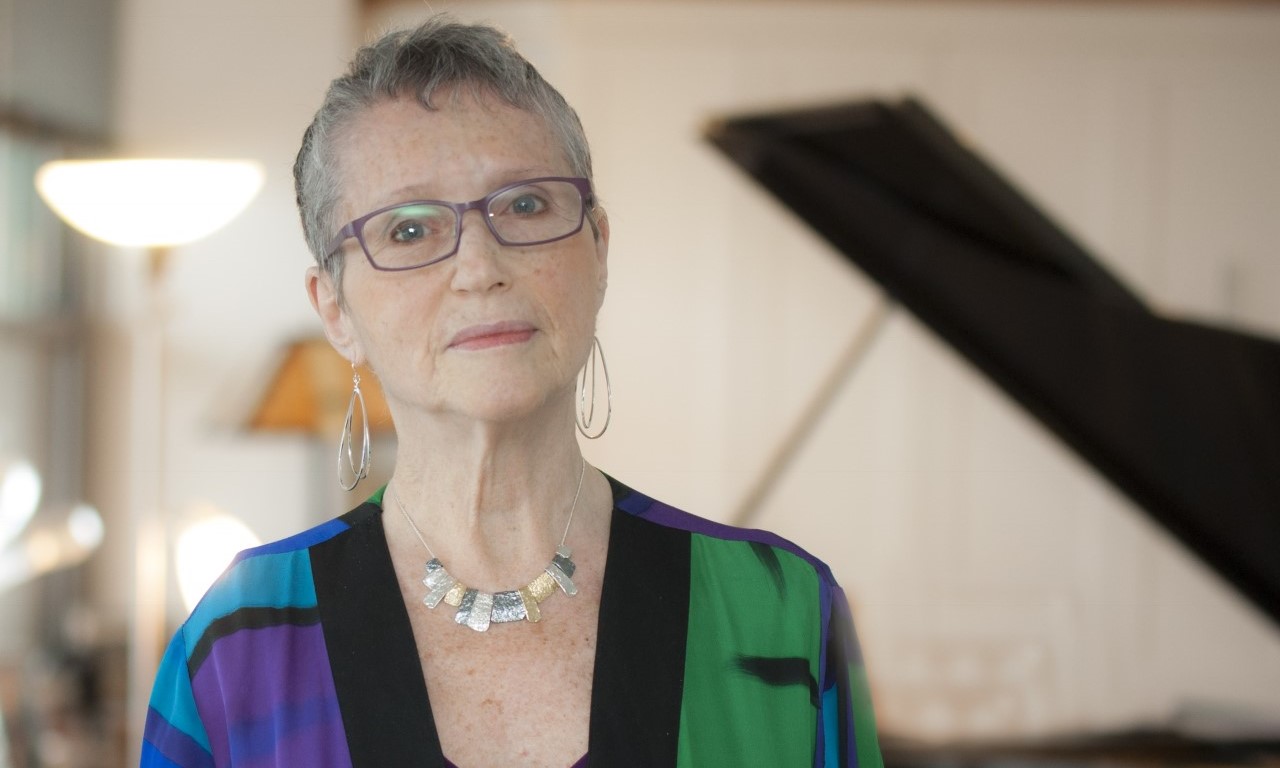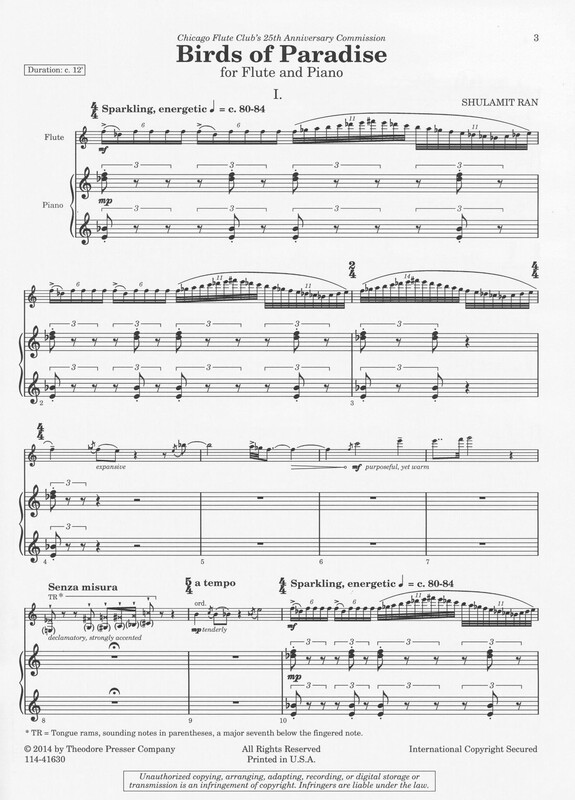Birds of Paradise
Item
-
Score title
-
Birds of Paradise
-
Composer
-
Shulamit Ran
-
Program note
-
Birds of paradise do exist! This fact became known to me thanks to an extraordinary program aired on PBS in September 2013, at the time I had completed all but the last phrase of my work of the same name, and had also settled on its title. My decision to name this 12-minute work BIRDS OF PARADISE was based purely on the imagined vision of a fantastical bird of many bright and amazing colors and the ability to soar high and in different speeds, conjured up in my mind. And then, for an added bit of support, there was also the flower of that name that we all know. Imagine my surprise at seeing stunning photography of the real birds that carry such a proud title!
My work intersperses music that is brilliant and energetic with the wondrous and songful. Its title notwithstanding, I did not set out to compose a "bird" piece – Messiaen's music, which I admire immensely, would seem to render such an effort quite unnecessary. The title does allude, however, to the musical imagery that the music, as I was composing it, was evoking in my own mind, where shifting motion and brilliant color take center-stage.
The work is structured in three movement-like sections that are played without breaks and that together form a fast-slow-fast shape, more a large A-B-C than true arch form, internally shaped in ways that allow for numerous detours into further contrasting terrains. As the piece progresses, several main ideas that emerge early on assert their dominance, helping tie together the various digressions and flights of fancy.
BIRDS OF PARADISE makes occasional use of extended flute techniques such as tongue rams, key clicks, and more, which for me are not so much "sound effects" but rather a natural extension of the flute's sound palette, which I use also as one of the ways in which some thematic materials and their elaborations in this work can be defined. They are part and parcel of the sound world that is at the essence of the "instrument's soul" as I hear it, and which I try to explore in many of my works. The "flute soul" heard here, to be sure, is an ever-evolving and subjective concept, in this case also affected by the ongoing interaction with the piano as the partnering member of this duo, yet always at the very core of the particular aura that remains even after the performance of the music has ended.
 Shulamit Ran
Shulamit Ran

